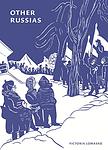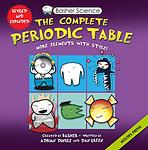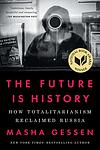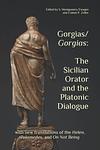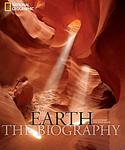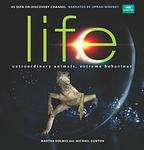The Greatest Russian, Multiple "Nonfiction" Books Since 2000
Click to learn how this list is calculated.
This list represents a comprehensive and trusted collection of the greatest books. Developed through a specialized algorithm, it brings together 300 'best of' book lists to form a definitive guide to the world's most acclaimed books. For those interested in how these books are chosen, additional details can be found on the rankings page.
Genres
Countries
Date Range
Reading Statistics
Click the button below to see how many of these books you've read!
Download
If you're interested in downloading this list as a CSV file for use in a spreadsheet application, you can easily do so by clicking the button below. Please note that to ensure a manageable file size and faster download, the CSV will include details for only the first 500 books.
Download-
1. La Charte Du Mandé Et Autres Traditions Du Mali by Aboubakar Fofana, Jean-Louis Sagot
"La Charte Du Mandé Et Autres Traditions Du Mali" is a comprehensive exploration of the rich historical and cultural heritage of Mali, focusing on the ancient Mandé Charter, also known as the Manden Charter. This seminal text delves into the origins and implications of this 13th-century document, which is one of the earliest forms of human rights charters. The book not only examines the charter's principles of social justice, equality, and political ethics but also contextualizes it within a broader spectrum of Malian traditions, shedding light on the country's profound historical narratives and the enduring cultural practices that continue to shape its identity.
-
2. The Diary Of A Gulag Prison Guard 1935 6 by Ivan Chistyakov
"The Diary Of A Gulag Prison Guard 1935-6" is a chilling and harrowing memoir that provides a firsthand account of the atrocities and cruelty witnessed by Ivan Chistyakov during his time as a guard in a Soviet Gulag prison. Through his detailed entries, Chistyakov reveals the dehumanizing conditions, brutal punishments, and constant fear that both prisoners and guards endured within the oppressive Soviet regime. This haunting narrative serves as a stark reminder of the dark realities of the Gulag system and the lasting impact it had on the lives of countless individuals.
-
3. Japanese Philosophy by John C. Maraldo, Thomas P. Kasulis, James W. Heisig
This book provides a comprehensive overview of Japanese philosophy, exploring its unique characteristics and its evolution through history. It delves into the diverse intellectual traditions of Japan, including both well-known philosophical schools and lesser-known but equally significant ideas. The text examines how Japanese philosophy has been influenced by and has interacted with other philosophical traditions, particularly Western philosophy, while also highlighting its distinct approach to fundamental philosophical issues such as ethics, aesthetics, and the nature of reality. Through a detailed analysis, the book offers insights into how Japanese philosophical thought has contributed to broader philosophical discourse and how it reflects the cultural and historical context of Japan.
-
4. Other Russias by Victoria Lomasko
"Other Russias" is a powerful and thought-provoking graphic novel that offers an intimate and unfiltered glimpse into the lives of marginalized individuals and communities in contemporary Russia. Through her stunning illustrations and poignant interviews, Victoria Lomasko sheds light on the struggles, hopes, and resilience of diverse groups such as LGBTQ+ activists, migrant workers, political dissidents, and the forgotten voices of rural communities. This eye-opening book challenges stereotypes and provides a humanizing portrayal of those who are often overlooked or silenced in Russian society.
-
5. The Philosophical Works Of Al Kindi by Peter E. Pormann, Peter Adamson
This book is a comprehensive compilation and analysis of the works of Al-Kindi, often regarded as the first of the Muslim peripatetic philosophers. The text delves into Al-Kindi's extensive contributions to various fields of knowledge, including philosophy, mathematics, astronomy, and medicine, highlighting his role as a pivotal figure in the translation and transmission of ancient Greek philosophy to the Islamic world. Through translations of his works and insightful commentary, the book provides a critical exploration of Al-Kindi's synthesis of philosophical thought and his influence on subsequent Islamic and Western intellectual traditions.
-
6. The Periodic Table by Adrian Dingle, Simon Basher
"The Periodic Table" is an educational book that presents the elements of the periodic table in a unique and engaging way. Aimed at younger readers, the book personifies each element, giving it a distinct voice and personality to make the scientific content accessible and entertaining. Through vivid illustrations and concise explanations, the book covers essential concepts about the structure and behavior of elements, their roles in the natural world, and their applications in various fields of science and industry. This approach not only helps demystify complex chemistry topics but also sparks curiosity and enthusiasm for science in its readers.
-
7. The Edge Of Physics by Anil Ananthaswamy
"The Edge of Physics" is a captivating exploration into the most extreme and remote scientific observatories around the world, where physicists are pushing the boundaries of our understanding of the universe. The book delves into the challenges and adventures faced by scientists as they work in inhospitable and often dangerous environments—from deep underground mines to high mountaintops and the icy expanses of Antarctica—to conduct experiments that probe the mysteries of dark matter, cosmic rays, and the origins of the universe itself. Through vivid storytelling, the book not only sheds light on cutting-edge scientific research but also reflects on the profound human curiosity and relentless pursuit of knowledge that drive these extraordinary endeavors.
-
8. The Future Is History: How Totalitarianism Reclaimed Russia by Masha Gessen
This book provides a deeply researched examination of the resurgence of totalitarianism in Russia, focusing on the lives of four individuals born at what promised to be the dawn of democracy. The book explores how, after the fall of the Soviet Union, instead of moving towards a democratic society, Russia has seen a rise in a new form of totalitarianism under its current leadership. It delves into the psychological shift in the Russian populace, the government's use of homophobia as a method of control, and how the internet and social media have been weaponized for political purposes.
-
9. Gorgias/Gorgias : The Sicilian Orator And The Platonic Dialogue by Coleen P. Zoller, Jurgen R. Gatt, S. Montgomery Ewegen
This book provides a comprehensive analysis of the Platonic dialogue centered on the figure of Gorgias, a renowned Sicilian orator and sophist. It delves into the philosophical conversations between Socrates and Gorgias, along with other interlocutors, exploring themes such as rhetoric, justice, and the nature of the good life. The text examines the intricacies of Socratic dialectic and the contrast between philosophical inquiry and the art of persuasion practiced by sophists. Through this exploration, the book sheds light on the enduring questions about the relationship between power, knowledge, and ethics in the context of human discourse and action.
-
10. Earth by Iain Stewart, John Lynch
This book provides a comprehensive exploration of the Earth's extraordinary history and the complex processes that have shaped it over billions of years. Through vivid descriptions and insights from scientific discoveries, the text delves into the dynamics of the planet's geology and climate, examining how these factors have influenced the evolution of life and continue to affect our present environment. The narrative also highlights the interconnectivity of Earth's ecosystems and the impact of human activity on its ongoing geological and biological transformations.
-
11. Life by Martha Holmes, Michael Gunton
"Life" is a captivating exploration of the adaptability and diversity of life on Earth, detailing the extraordinary tactics organisms employ to survive and thrive. The book, accompanying a major documentary series, delves into the lives of various plants and animals, showcasing their complex behaviors and the remarkable strategies they use to overcome environmental challenges. From the depths of the ocean to the canopies of rainforests, the narrative is richly illustrated and brings to light the interconnectedness of Earth's ecosystems and the ingenuity of its inhabitants, emphasizing the resilience and beauty of the natural world.
Reading Statistics
Click the button below to see how many of these books you've read!
Download
If you're interested in downloading this list as a CSV file for use in a spreadsheet application, you can easily do so by clicking the button below. Please note that to ensure a manageable file size and faster download, the CSV will include details for only the first 500 books.
Download

